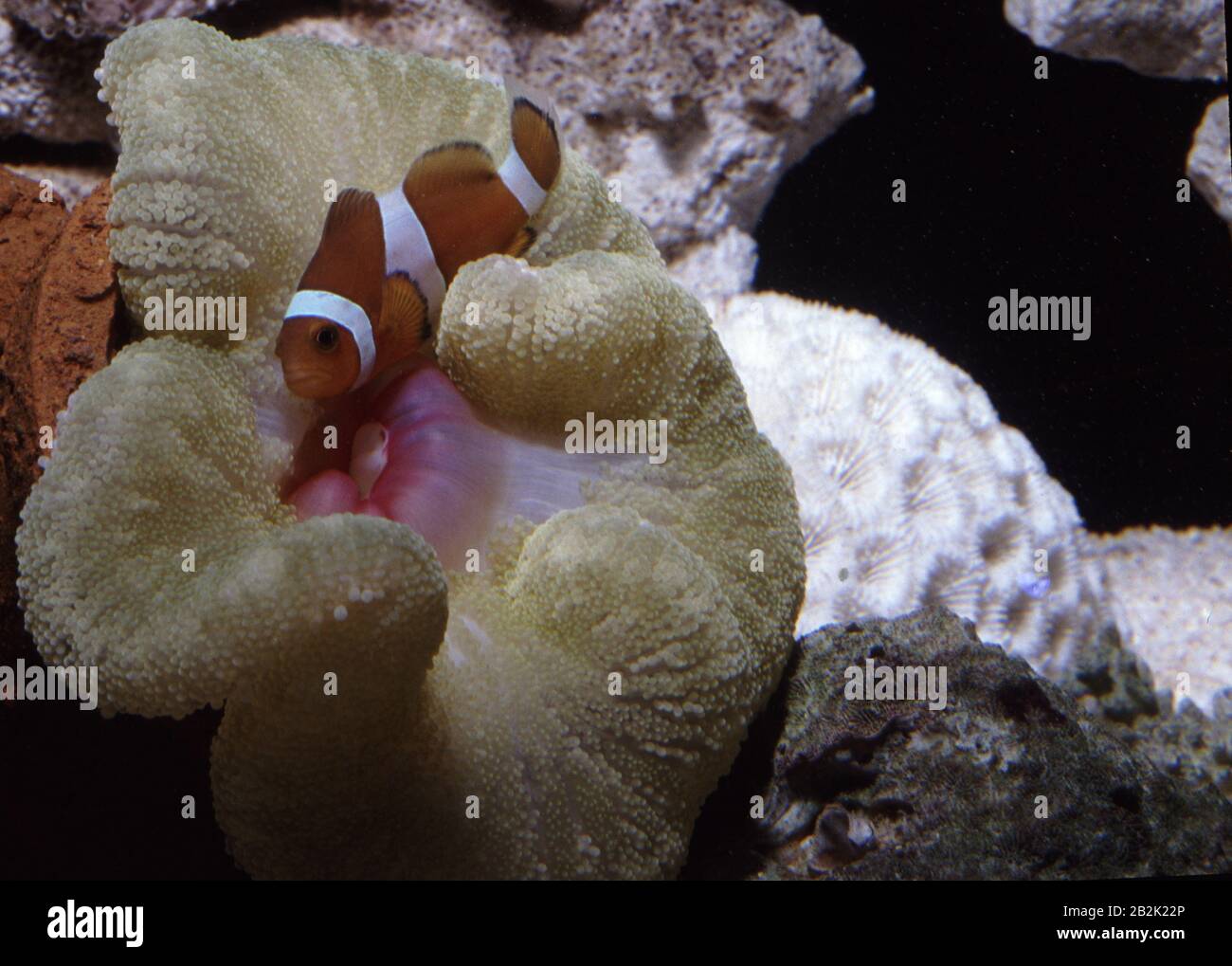The tomato clownfish amphiprion frenatus is a species of marine fish in the family pomacentridae the clownfishes and damselfishes.
Tomato clownfish carpet anemone.
In nature the diet of clownfish consists of crustaceans such as copepods and amphipods algae polychaete worms and leftovers from the anemone s meal.
It is native to the waters of the western pacific from the japan to indonesia.
Clownfish have been known to host many things other than anemones including feather dusters and toadstool corals after rejecting every anemone presented to it.
Amphiprion perideraion pink skunk is a commonly available clownfish but i find it not to be very popular with most hobbyists.
Clarkii clownfish is an aggressive feeder.
The clownfish can protect the anemone from predation from certain anemone eating fish species racoon butterfly fish and the anemone can protect the clownfish from predation as well.
The difference is the size of the white bar.
Clownfishes may also provide food in a round about way for the anemone.
Clownfish do not need an anemone to survive in the home aquarium.
Additionally the male tomato clownfish lacks the dark coloring that the female tomato clownfish has and that the red and black anemonefish has.
The tomato clownfish looks very similar to the cinnamon or black and red anemonefish.
Some aquarists believe that tank raised clownfish do not host anemones as readily as wild caught clownfish after a few generations.
Carpet anemone and clown fish hello we are new to the forum we are looking at setting up a 12 gal jbj nano cube deluxe led and are planing on housing a carpet anemone stichodactyla haddoni and 2 false percula amphiprion ocellaris.
The anemones true percula clownfish are normally associated with in the sea are the sebae heteractis crispa ritteri heteractis magnifica and giant carpet stichodactyla gigantea.
Any food that the clownfish doesn t eat bits and scraps may be consumed by the anemone.
Anemones can be beneficial for the clownfish but the host anemones that are found in their natural environment can be difficult to care for in captivity and are not recommended for the saltwater novice.

